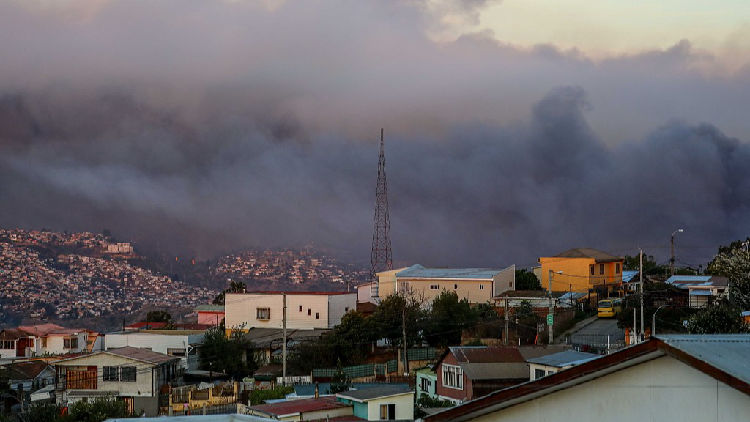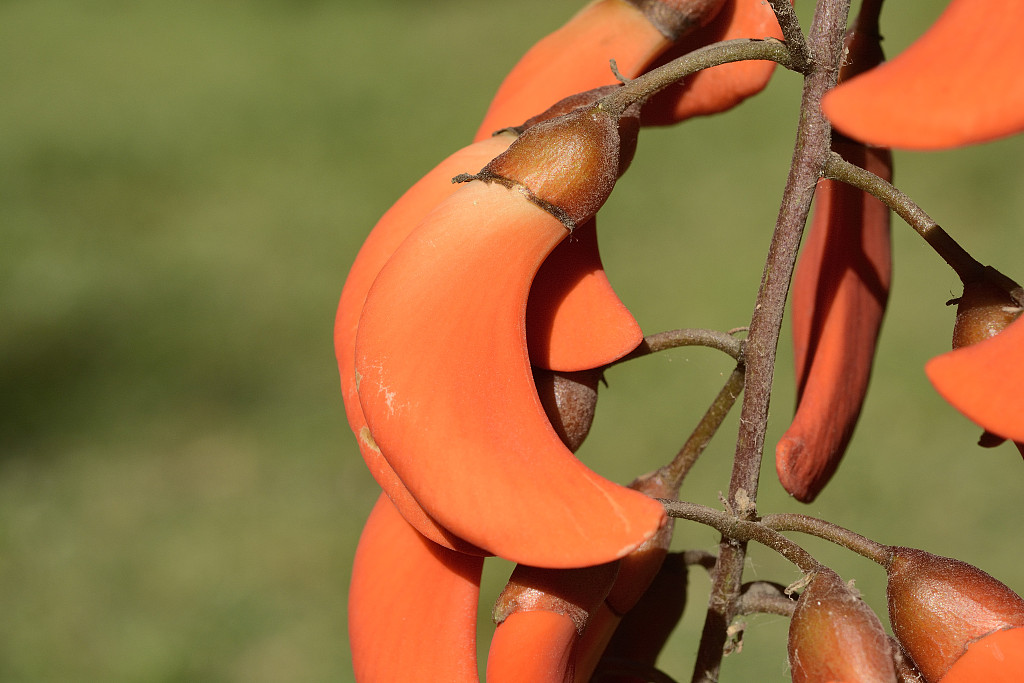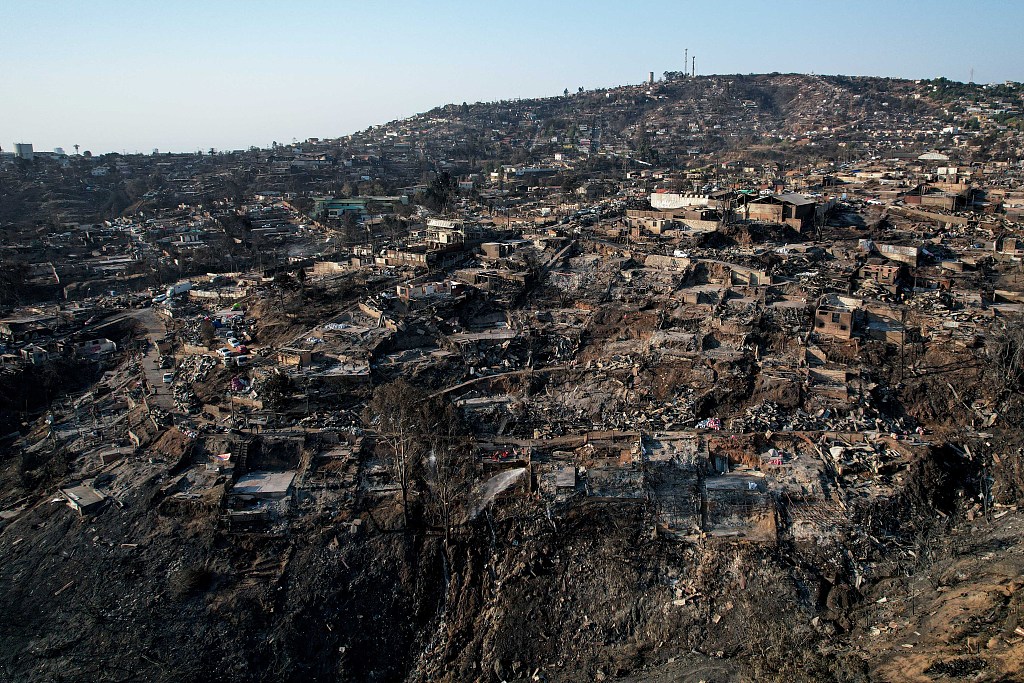Deadly wildfire engulfs one of the world's largest botanic gardens in Chile
Deadly wildfire engulfs one of the world's largest botanic gardens in Chile

Chile's national botanical garden, home to many endemic species that can only be found there, is on the brink of total destruction in the deadly forest fire that has killed at least 123 people in the country.
The garden, located in the coast city of Viña del Mar in central Chile and spanning 1,000 acres, is one of the world's largest center for botanical conservation and research.
New York Time reports that 98 percent of the garden has been destroyed by the flames.
On Friday afternoon, the garden's staff members had to evacuate several hundred visitors as the fire engulfed the area.
A female greenhouse keeper working in the garden, her mother and two grandsons were killed.
The garden currently nurtures over 1,000 tree species, including many rare cactuses, exotic plants from Europe and Asia, and some of the world's last known Sophora toromiro trees now extinct in the wild.

Some of the plants have survived Friday's fire, including a few of the rare Sophora toromiro trees, and Ginkgo biloba trees that survived the atomic bomb in Hiroshima, Japan.
Alejandro Peirano, the garden's director, said he is confident that the native plants will thrive again after rain.
Reports say that authorities on Monday reiterated that they believed the fires were sparked intentionally.
Two people were arrested on Sunday for attempting to start fires near the botanical garden, but they were later released due to lack of evidence.
Viña del Mar's Mayor Macarena Ripamonti said that at least 370 people have been reported missing in the city of about 300,000 residents.

The fires appeared to have diminished by Monday morning after burning intensely since Friday on the eastern edge of Viña del Mar. Two other towns in the Valparaíso region, Quilpé and Villa Alemana, also have been hit hard, and President Gabriel Boric said Sunday that at least 3,000 homes had been burnt down in the area.
Authorities have introduced a 9 p.m. curfew in the hardest-hit areas and sent in the military to help firefighters stem the spread of fires, while helicopters dumped water to try to douse the flames from the air.
Although wildfires are not uncommon during the Southern Hemisphere's summer, the lethality of these blazes stands out, making them Chile's worst national disaster since the 2010 earthquake in which about 500 people died.
Besides the botanic garden fire, officials have suggested that some of the other wildfires around the city could also have been intentionally provoked.
Dry weather, strong winds and low humidity helped the fires spread faster, President Boric said.
(With input from AP, Reuters)
(Cover: Smoke from forest fires over the city center of Valparaiso, Chile, February 2,2024. /CFP)
Find more stories on the environment and climate change on TROIB/Planet Health












